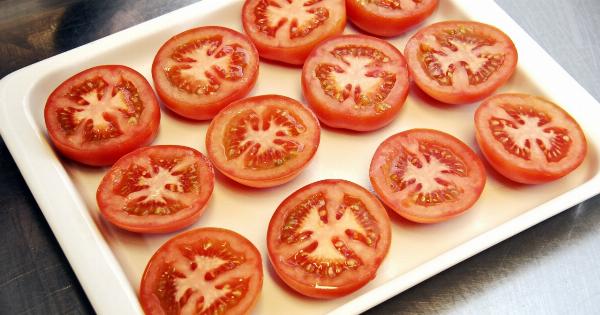When it comes to preventing or fighting colon cancer, diet plays a vital role. In fact, a diet rich in vegetables can significantly reduce the risk of this deadly disease.
Vegetables are packed with nutrients that not only help boost the immune system but also fight cancer cells. Here are some of the best vegetables for fighting colon cancer.
1. Broccoli
Broccoli is a cruciferous vegetable that contains abundant quantities of sulforaphane, a plant compound that has been shown to have potent anti-cancer properties.
Studies have found that sulforaphane can inhibit the growth of colon cancer cells by up to 80%. According to a study published in the Journal of Nutrition, eating broccoli can also help prevent the recurrence of colon cancer.
2. Spinach
Spinach is a leafy green vegetable that is packed with nutrients. It is a rich source of vitamin C, vitamin A, and beta-carotene, which can all help boost the immune system.
Research has also found that the lutein and zeaxanthin in spinach can protect against colon cancer. A study published in the International Journal of Cancer found that a diet high in spinach reduced the risk of colon cancer by up to 30%.
3. Cauliflower
Cauliflower is another cruciferous vegetable that has anti-cancer properties. It contains a compound called indole-3-carbinol, which has been shown to reduce the risk of colon cancer.
Studies have also found that cauliflower can inhibit the growth of colon cancer cells. An animal study published in Cancer Research found that a diet rich in cauliflower reduced the size and number of colon tumors.
4. Carrots
Carrots are a root vegetable that are rich in beta-carotene, which is converted into vitamin A in the body. Vitamin A is an antioxidant that can help protect against colon cancer.
A study published in the journal Cancer Research found that rats fed a diet high in carrots had a lower risk of colon cancer. Other studies have found that the fiber in carrots can help reduce the risk of colon cancer.
5. Garlic
Garlic is a member of the allium family, which also includes onions, shallots, and leeks. It contains sulfur compounds, which are responsible for its pungent smell and taste. These compounds have been shown to have potent anti-cancer properties.
A study published in the Journal of Nutrition found that garlic can inhibit the growth of colon cancer cells by up to 71%. Other studies have found that eating garlic can lower the risk of colon cancer by up to 30%.
6. Brussels Sprouts
Brussels sprouts are another cruciferous vegetable that can help protect against colon cancer. Like broccoli and cauliflower, they contain sulforaphane, which has anti-cancer properties.
A study published in the Journal of Agricultural and Food Chemistry found that the glucosinolates in Brussels sprouts can prevent the growth of colon cancer cells. Other studies have found that eating Brussels sprouts can reduce the risk of colon cancer by up to 25%.
7. Kale
Kale is a leafy green vegetable that is rich in nutrients. It is a good source of vitamin C, vitamin K, and beta-carotene. It also contains quercetin, a flavonoid that has been shown to have anti-cancer properties.
A study published in the International Journal of Cancer found that eating kale can reduce the risk of colon cancer by up to 50%. Other studies have found that the fiber in kale can help reduce the risk of colon cancer.
8. Asparagus
Asparagus is a vegetable that is packed with nutrients. It is rich in folate, vitamin C, and fiber. It also contains a compound called inulin, which is a prebiotic that can help promote the growth of beneficial gut bacteria.
A study published in the International Journal of Molecular Sciences found that the antioxidants in asparagus can protect against colon cancer. Other studies have found that eating asparagus can reduce the risk of colon cancer by up to 45%.
9. Bell Peppers
Bell peppers are a good source of vitamin C, vitamin A, and fiber. They also contain compounds called capsaicinoids, which give them their spicy taste. Capsaicinoids have been shown to have anti-cancer properties.
A study published in the Journal of Nutritional Biochemistry found that eating bell peppers can reduce the risk of colon cancer. Other studies have found that the fiber in bell peppers can help reduce the risk of colon cancer.
10. Cabbage
Cabbage is a cruciferous vegetable that is rich in nutrients. It is a good source of vitamin C, vitamin K, and fiber. It also contains a compound called sulforaphane, which has been shown to have anti-cancer properties.
A study published in the Asian Pacific Journal of Cancer Prevention found that eating cabbage can reduce the risk of colon cancer by up to 40%. Other studies have found that the fiber in cabbage can help reduce the risk of colon cancer.






























